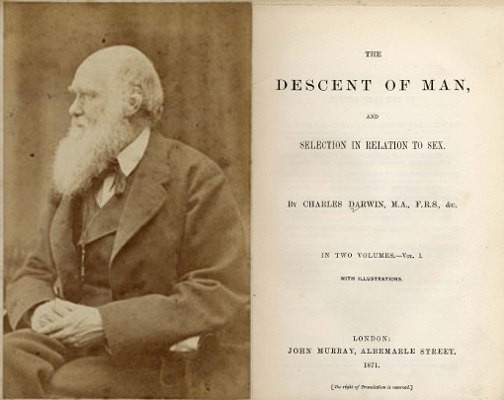Maciek Chudek, Joe Henrich, and I wrote an introduction to Cultural Evolution in the most recent Handbook of Evolutionary Psychology, 2nd edition – edited by David Buss.
The chapter provides a brief overview of the science of cultural evolution, including its psychological foundations and implications. We discuss how humans evolved a second-line of inheritance, crossing the threshold into a world of cumulative culture. We begin by asking how culture can evolve, dispelling the mythical requirement of discrete genes and exact replication.
Evolutionary adaptation has three basic requirements: (1) individuals vary, (2) this variability is heritable (information transmission occurs), and (3) some variants are more likely to survive and spread than others. Genes have these characteristics so they evolve and adaptive. Culture also meets all three requirements, but in different ways. Like bacterial genes, cultural information spreads horizontally and need not be limited to parental transmission to offspring.
We discuss the evolution of our capacity for culture, asking how and when capacities for culture will evolve (when is cultural learning genetically adaptive).
The answer: culture is adaptive when asocial learning is hard and environments fluctuate a lot, but not too much.
We also outline the evolution of some of our social learning biases (a large part of the third requirement of an evolutionary system):
- Who we learn from (e.g. skilled, successful, and prestigious models; conformist transmission)
- What moderates these choices (e.g. self-similarity, age, sex, ethnicity; Credibility Enhancing Displays, CREDs).
- Some examples in the real world, such as the social spread of suicides (Werther effect) and literally learning better from same-sex and same-race instructors.
- Content biases on what to learn: e.g. animals and plants, dangers, fire, reputation, social norms, and social groupings.
Cultural evolution shapes the beliefs and behaviors of groups so that they come adapted to the local environment (including culture) over time, shaping preferences and psychology.
Turning to the population-level, we explain why sociality influences cultural complexity (larger, more interconnected populations have more terms and technologies), how cultural evolution can lead to maladaptive behavior, and how intergroup competition can help eliminate these maladaptive behaviors, briefly discussing the viability of cultural-group selection.
Finally, we discuss how genes can adapt to culture: culture-gene coevolution and how this process may have led to the rapid expansion of the human brain.










